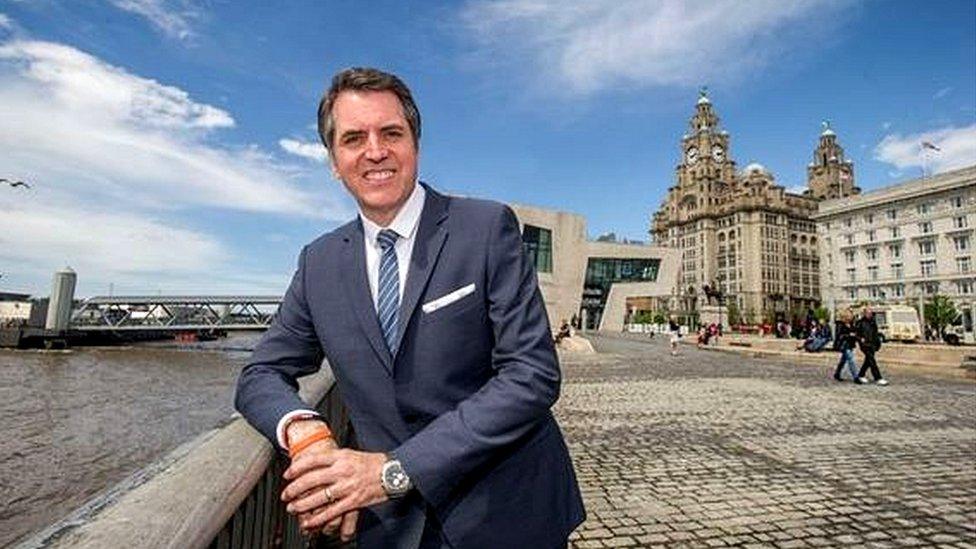Levelling up: Yorkshire leaders' concern over funding
- Published
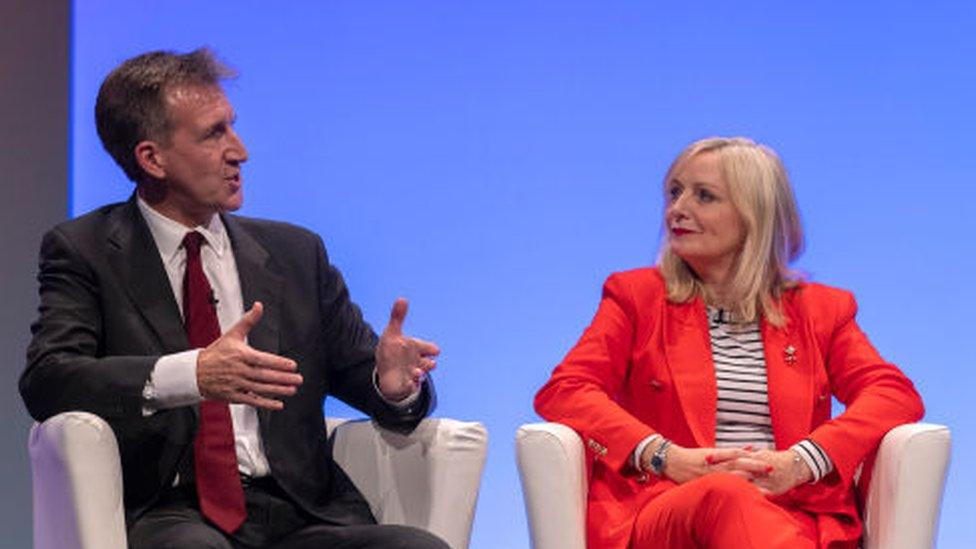
The mayors of South and West Yorkshire have both expressed concerns over funding for levelling up
Political leaders in Yorkshire have welcomed the government's new levelling up plans, but warned the "devil was going to be in the detail".
Labour's Tracy Brabin, mayor of West Yorkshire, said the strategy was like a "love letter to levelling up".
However, she said the North would be left "struggling" if the strategy was not supported with extra funding.
Levelling Up Secretary Michael Gove said it was not aimed at fresh funding but ensuring it was spent effectively.
The strategy, unveiled by Mr Gove, would take until 2030 and aimed to improve services such as education, broadband and transport.
Mr Gove said it would "shift both money and power into the hands of working people".
Responding to the announcement, Tracy Brabin said: "The devil is going to be in the detail."
She added: "It is like a love letter to levelling up: lots of ambition, lots of hope, but unless you actually have the money and the resources you are going to be struggling."
Meanwhile, the mayor of South Yorkshire, Labour's Dan Jarvis, said the White Paper announced by Mr Gove was a "step in the right direction".
However, he said the strategy did not "provide the investment needed to deliver the transformational change all of us in the North want to see".

'Falling behind'

The BBC asked people in the West Yorkshire town of Wakefield what they thought of the government's plans for levelling up.
"We seem to be falling a bit behind here," 69-year-old Anthony Poole said.
His wife, Melissa Poole, 70, said transport was a problem as bus services had been cut.
"We are an ideal place here to go to Leeds and Bradford, but the last train is at half past eleven."
The couple said a meal out in neighbouring Leeds meant going out early.
"Getting a taxi is far too expensive, so we do rely on the buses or the train - but they all end a bit early."
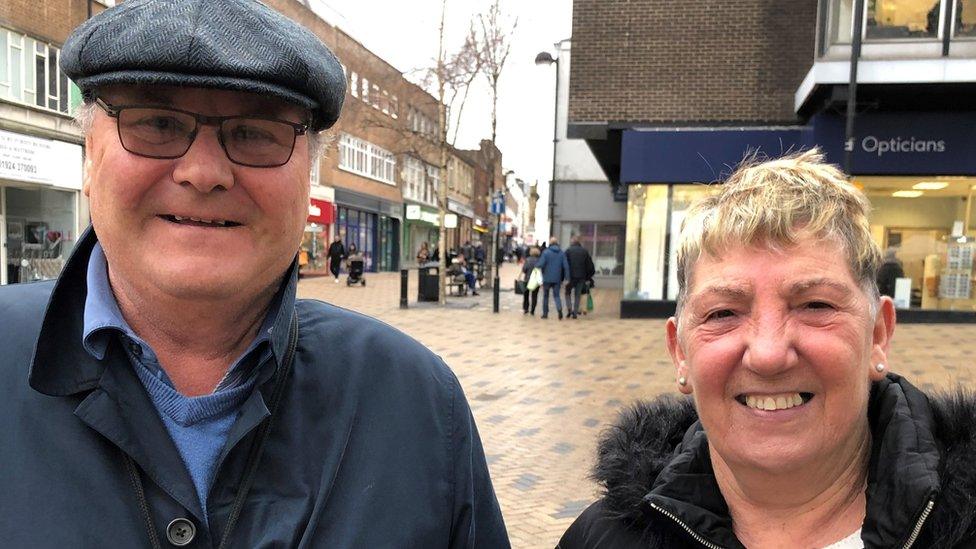
Anthony and Melissa Poole say they would like to see improvements in transport links
Transport was also raised by Kath Lindley, who runs a local charity, who said some services only run every two hours, creating social isolation and cutting off young people from opportunities.
Meanwhile, Nelson, 39, said his priority was housing, in the hope of cutting the reliance on private landlords
"Most people I know are struggling," he said.
Student Sandy, 17, said he wanted cash spending on improving public spaces in the town and on education.
"I think there could be better pay for teachers, better resources and the education environments could have a higher budget," he said.

BBC Yorkshire's James Vincent explains the history behind 'levelling up'.
Denise Lelliot, Labour cabinet member for Rotherham Council, said she was not impressed with the proposals announced by Mr Gove.
"It is just giving us back what we've had taken off us. It's nothing like what we need for levelling up. It is just throwing crumbs at us."
However, unveiling the plans, Mr Gove said improvements would be seen in key services such as education, broadband and transport.
It also included plans to create more regional mayors, such as the posts held by Ms Brabin and Mr Jarvis.
That was welcomed by the Liberal Democrat leader of York, Keith Aspden, and the Conservative leader of North Yorkshire County Council, Carl Les.
They said they hoped the strategy would bring a devolution deal for the area "a step closer".
"Devolution can unlock significant, long-term investment for this region, driving growth and contributing to a stronger northern economy," they said.
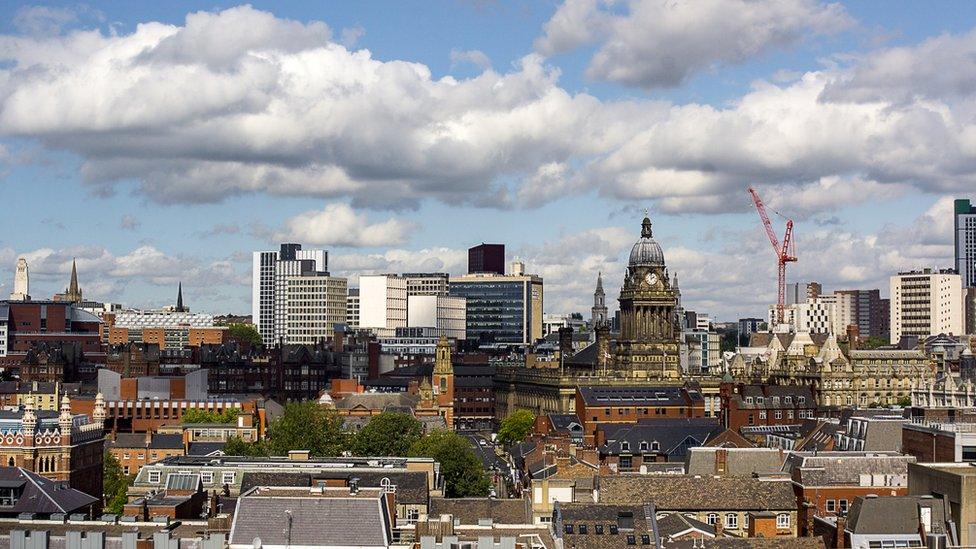
Levelling up was a key part of the Conservatives' election manifesto in 2019
Ms Brabin said investment was still essential as Yorkshire was "rebuilding from a lower base" after a decade of austerity and "swingeing cuts" to local council budgets.
She said transport was a key issue and pointed to the government's "hugely disappointing" integrated rail plan, which dropped the Leeds extension to HS2 and abandoned a new line between Leeds and Manchester.
A lack of cash was also hitting bus services, Ms Brabin said.
"We are in a situation where the bus companies are already cutting routes in the areas which need the most levelling up because they don't have government money."
Mr Jarvis warned that without the government providing the funding needed for "real change", its promises of levelling up would "remain hollow".


From Northern Powerhouse to levelling up, big-sounding slogans have helped the Conservatives win seats around here for the first time in their history.
This is the document which is supposed to back those promises up: the Levelling Up White Paper, external.
Evening things up for the North, the problem is that the North is not just one thing.
It is not a land far away, it is a lot of little communities and big cities each with their own identities, pride and problems.
Many here feel like Westminster is a long way away and that those on the benches of power do not really understand what it is like to grow up in Castleford, Scarborough or Maltby.
They might need some persuasion that systemic problems that have been around for generations can actually be solved.
One of the criticisms of the government's policy since 2019 was that it was too vague and had no targets.
This White Paper has some that can be measured - and the government says it wants to be held to account on it.
Ten years after the Northern Powerhouse was first mentioned, the general election in 2024 will be a very public measurement of whether voters think it is working.

Follow BBC Yorkshire on Facebook, external, Twitter, external and Instagram, external. Send your story ideas to yorkslincs.news@bbc.co.uk, external.
- Published2 February 2022
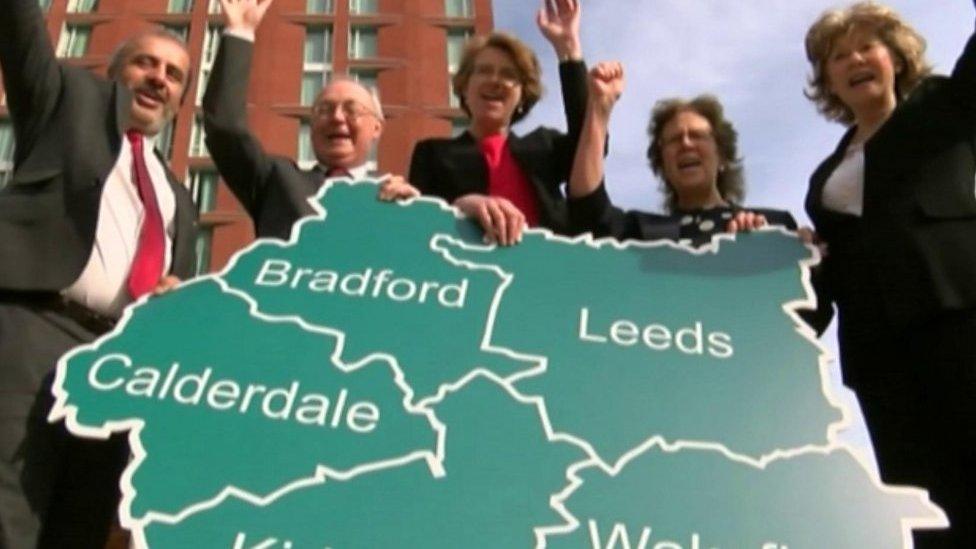
- Published2 February 2022
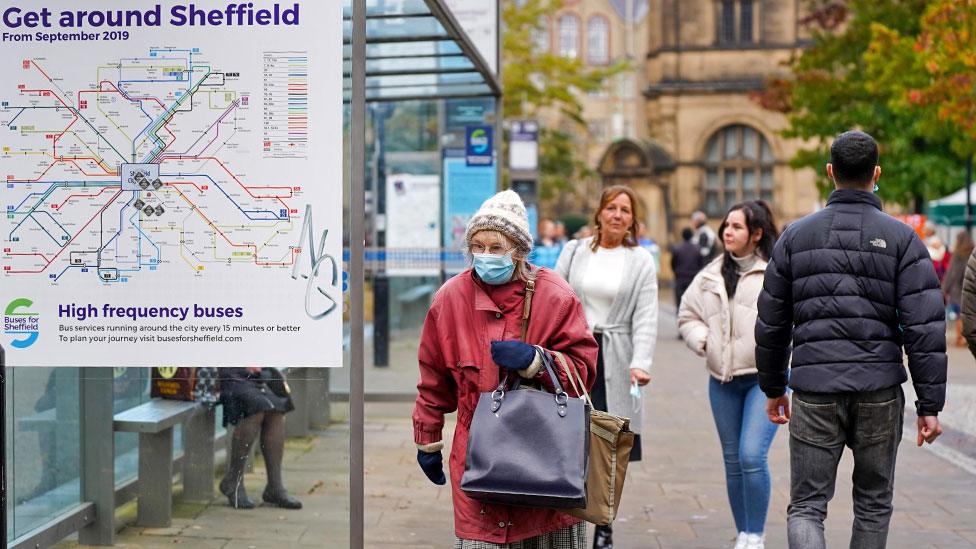
- Published2 February 2022
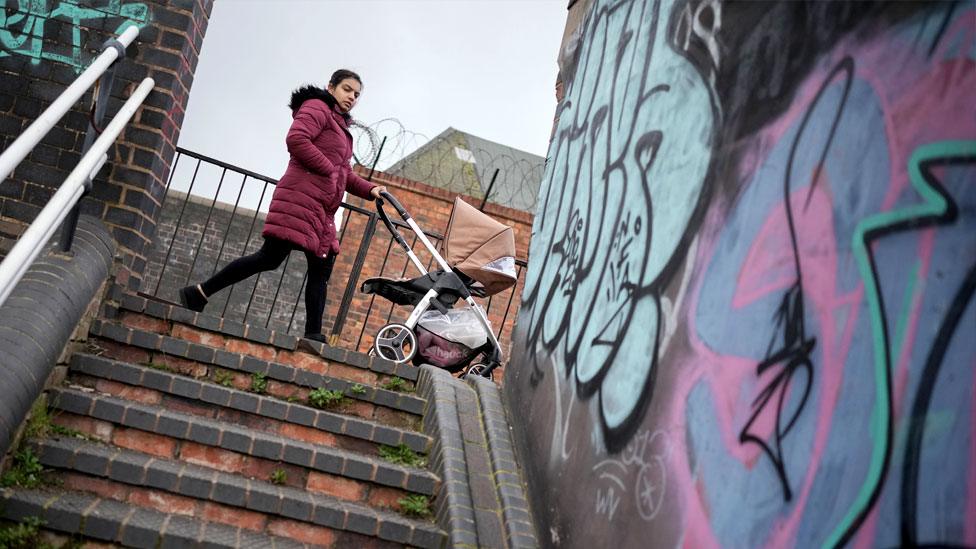
- Published1 February 2022
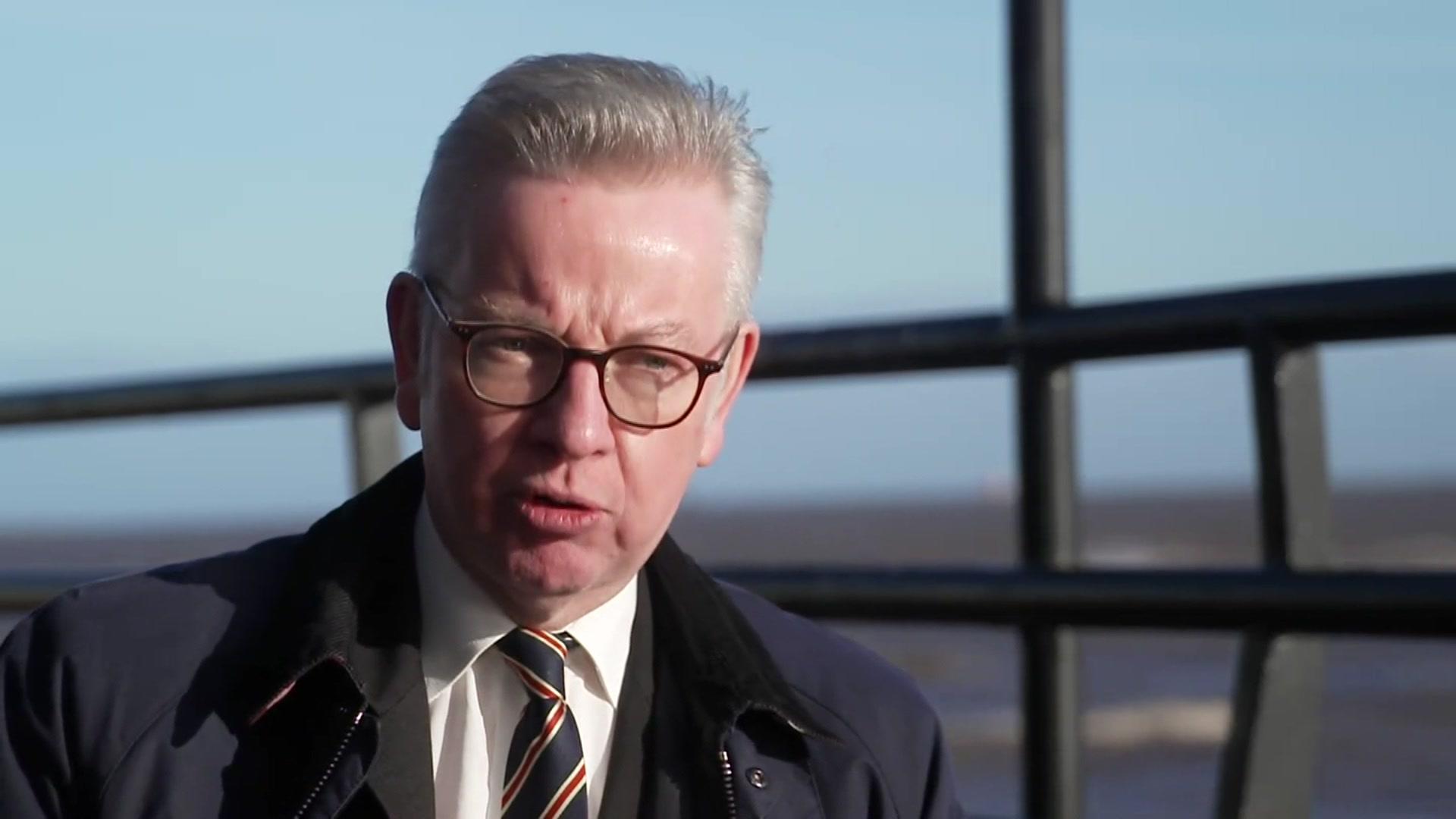
- Published25 August 2021

- Published2 February 2022
